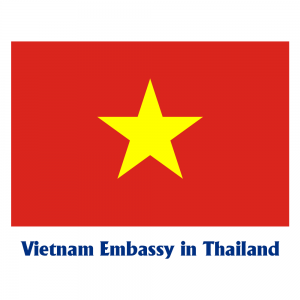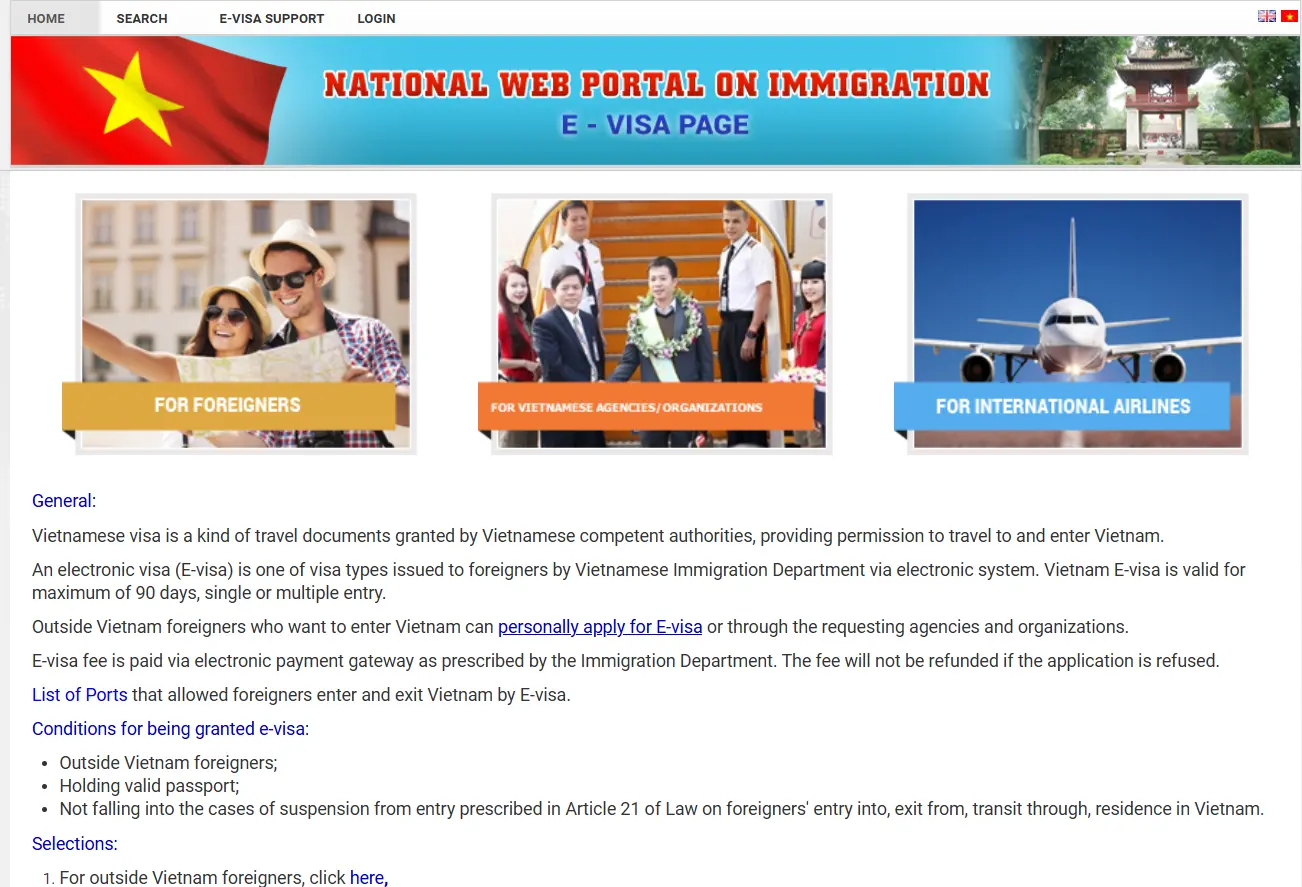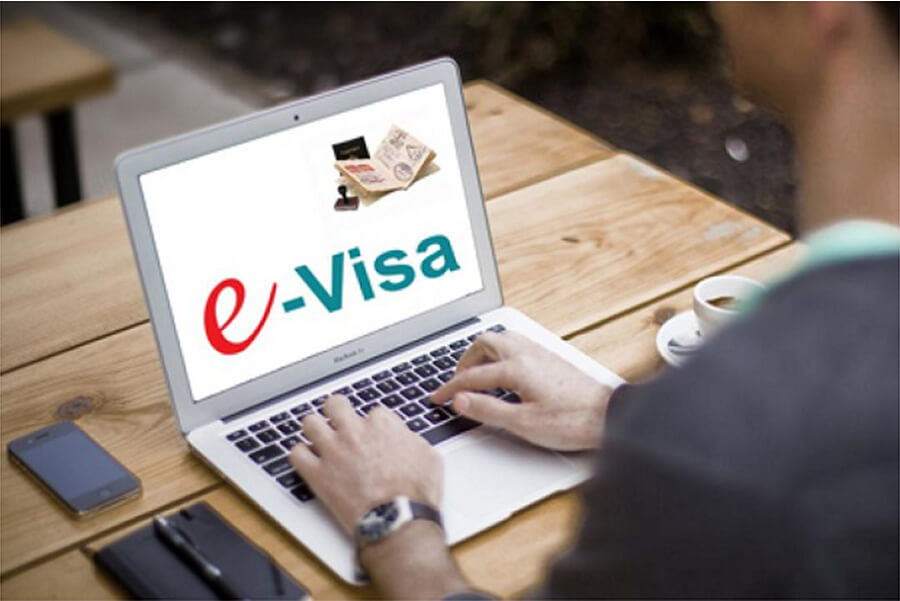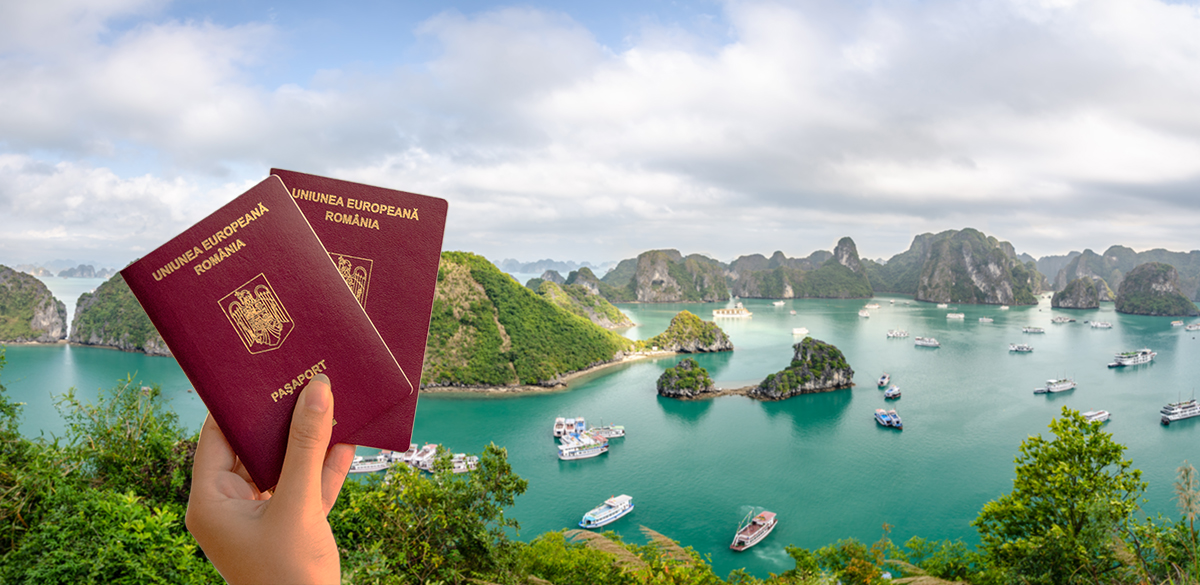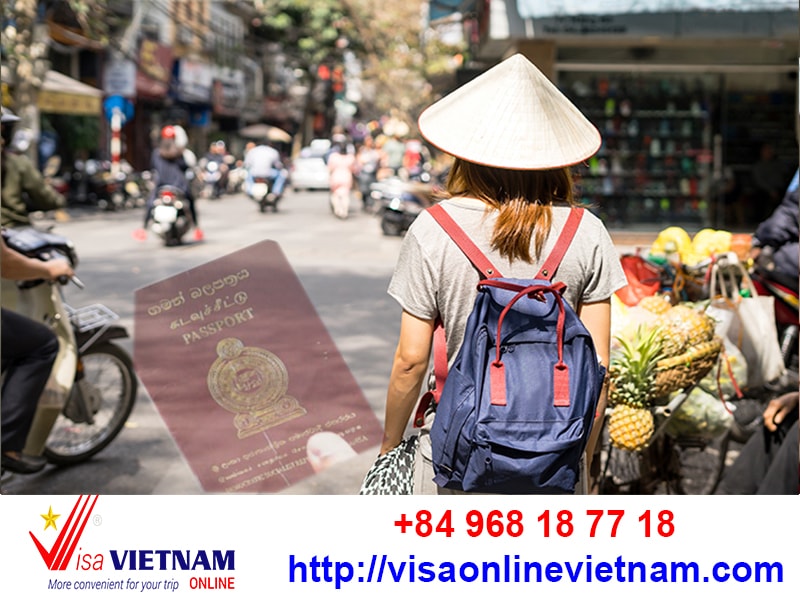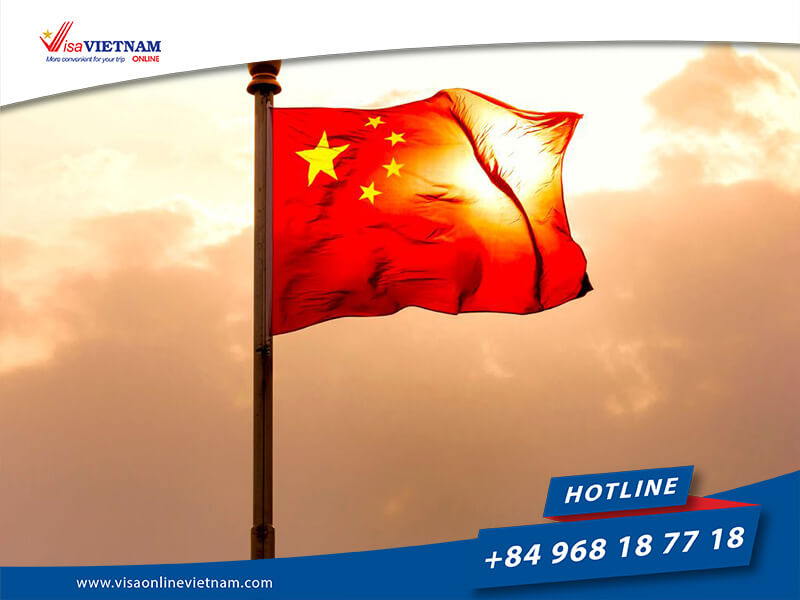
Vietnam Visa from China: A Complete Guide for Chinese Citizens
Vietnam, a captivating Southeast Asian country known for its breathtaking landscapes, vibrant culture, an become an increasingly popular destination for Chinese travelers. To embark on your adventure in this enchanting land, securing a Vietnam visa is crucial. This comprehensive guide provides a detailed overview of the visa application process for Chinese citizens, covering every essential aspect from understanding the different visa types to securing your visa.
Introduction

Overview of Vietnam visa application process for Chinese citizens
Obtaining a Vietnam visa from China may seem like a daunting task, but with the right information and preparation, the process can be seamless. This guide will walk you through the step-by-step procedures, from identifying the appropriate visa type to submitting your application and collecting your visa.
Importance of obtaining a Vietnam visa from China
While Vietnam might be a relatively short flight from China, obtaining a Vietnam visa before your trip is crucial. Traveling to Vietnam without a valid visa can lead to serious complications, including refusal of entry, fines, and even deportation. By applying for a visa beforehand, you ensure a smooth and hassle-free journey, allowing you to focus on enjoying your time in Vietnam without any unnecessary stress. This guide will equip you with the knowledge and tools to navigate the visa application process successfully.
How to Apply for a Vietnam Visa from China
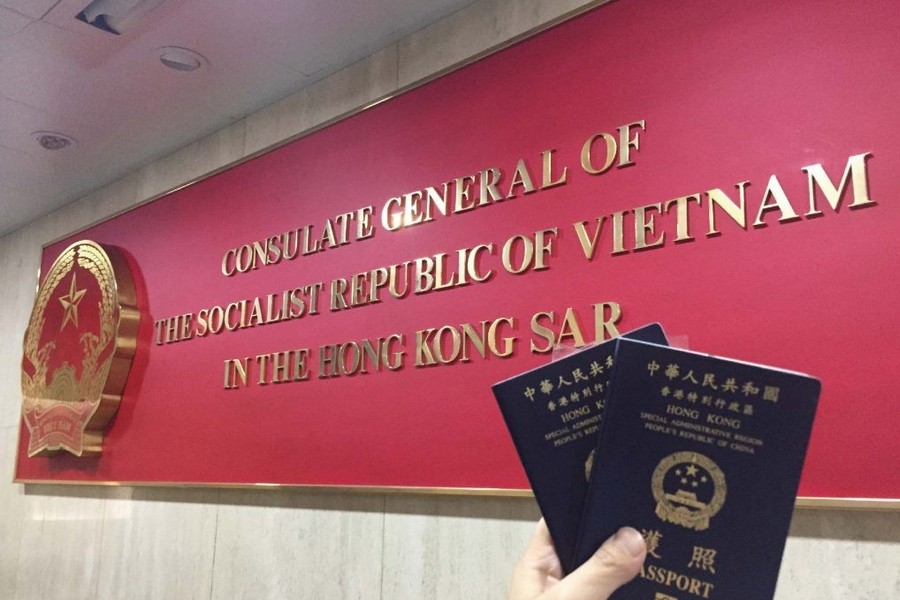
Understanding the different types of Vietnam visas available
There are several types of Vietnam visas available for Chinese citizens, each catering to different travel purposes and durations. Here’s an overview of the most common visa types:
- Tourist Visa: This visa is ideal for those traveling to Vietnam for leisure purposes, such as sightseeing, visiting friends or family, or exploring the country’s rich cultural heritage. Tourist visas are typically valid for up to 30 days, but extensions are possible.
- Business Visa: If your trip to Vietnam involves business activities, such as attending conferences, meetings, or pursuing investment opportunities, a business visa is the appropriate choice. These visas typically have a validity period of up to 90 days.
- Student Visa: Chinese students planning to study in Vietnam can apply for a student visa, which allows them to pursue educational opportunities in the country for an extended period.
- Work Visa: For those seeking employment opportunities in Vietnam, a work visa is required. This visa type is subject to specific requirements and may involve additional documentation from your prospective employer.
Step-by-step guide to applying for a Vietnam visa online
Many Chinese citizens opt for the convenience of applying for a Vietnam visa online. Here’s a step-by-step guide to help you navigate the process:
- Visit the official Vietnam visa application website: The first step is to visit the official Vietnam visa application website, which is typically managed by the Vietnamese embassy or consulate in China.
- Create an account: You’ll need to create an account by providing your personal details, such as your name, date of birth, and passport information.
- Select the appropriate visa type: Based on your travel purpose, select the appropriate visa type from the available options.
- Fill out the application form: Carefully fill out the online application form, ensuring that all information provided is accurate and up-to-date.
- Upload required documents: Depending on the visa type, you may need to upload supporting documents, such as a passport photo, proof of accommodation, or a letter of invitation from a Vietnamese host.
- Review and submit your application: Once you’ve completed the application form and uploaded all necessary documents, review your information for accuracy before submitting your application.
- Make the payment: Most online visa application platforms accept various payment methods, including credit cards, debit cards, or online payment systems like PayPal or Alipay.
- Track your application status: After submitting your application, you’ll receive a tracking number or reference code. Use this to monitor the status of your application and receive updates on its progress.
Submitting documents and paying fees for your Vietnam visa application
Depending on the visa type and application method you choose, you may need to submit additional documents and pay the corresponding visa fees. Here are some common requirements:
- Passport: Your passport must have at least six months of remaining validity and two blank pages for the visa to be affixed.
- Passport photos: Recent passport-style photos are typically required, with specific requirements regarding size, background, and facial expression.
- Proof of accommodation: For some visa types, you may need to provide evidence of your accommodation arrangements in Vietnam, such as hotel reservations or a letter from your host.
- Travel itinerary: Depending on the visa type, you may need to provide details of your planned travel itinerary in Vietnam, including arrival and departure dates, as well as a tentative schedule of activities.
- Visa fees: Vietnam visa fees for Chinese citizens vary based on the visa type and processing time. Fees can be paid through various methods, including online payment gateways, bank transfers, or in-person at the embassy or consulate.
Processing Time for Vietnam Visa from China
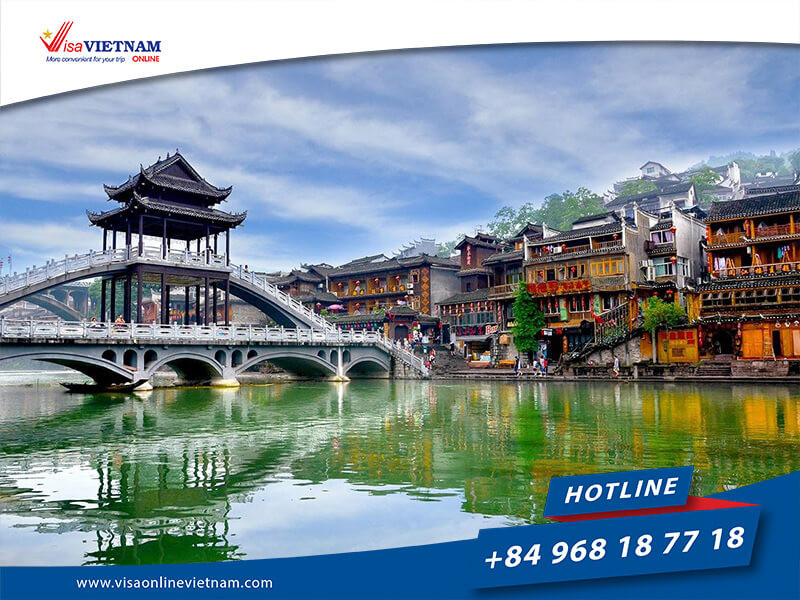
Factors that may affect the processing time of your Vietnam visa application
The processing time for a Vietnam visa application from China can vary depending on several factors:
- Visa type: Different visa types may have varying processing times. For example, tourist visas are generally processed more quickly than work or student visas, which may require additional scrutiny and documentation.
- Application method: Applications submitted online or through a visa agency may be processed faster than those submitted directly at the embassy or consulate.
- Travel season: During peak travel seasons, such as holidays or summer months, the volume of visa applications may be higher, potentially leading to longer processing times.
- Completeness of application: Incomplete or inaccurate applications may result in delays as additional information or documents may be requested.
Expedited options for urgent Vietnam visa applications
If you need to obtain your Vietnam visa urgently, there are typically expedited options available, although these may come with additional fees. Here are some common expedited services:
- Rush processing: By paying an additional fee, you can request your visa application to be processed on a priority basis, potentially reducing the processing time by several days or even hours.
- Visa agencies: Some visa agencies offer expedited services, leveraging their relationships with embassies and consulates to facilitate faster processing times for an additional fee.
- Embassy or consulate appointments: Depending on availability, you may be able to schedule an appointment at the embassy or consulate to submit your application in person, which can sometimes expedite the process.
It’s important to note that expedited options may be subject to availability and may not guarantee a specific processing time, but they can increase the likelihood of receiving your visa more quickly.
Requirements for Vietnam Visa from China
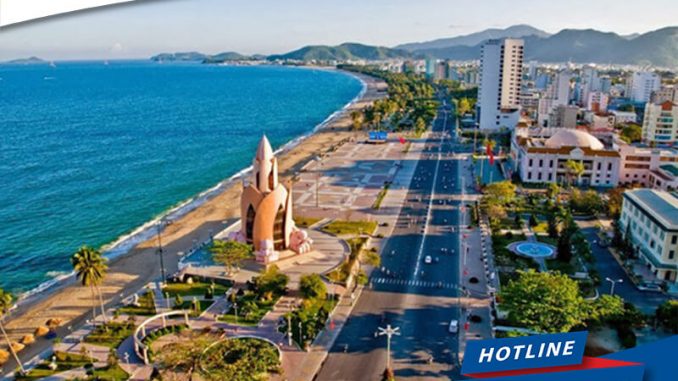
Validity of Chinese passport for applying for a Vietnam visa
One of the essential requirements for obtaining a Vietnam visa from China is having a valid Chinese passport. Here are some key points regarding passport validity:
- Passport expiration date: Your Chinese passport must be valid for at least six months beyond the intended date of entry into Vietnam. This is a standard requirement for most countries to ensure that your passport remains valid throughout your stay.
- Number of blank pages: Your passport should have at least two blank pages available for the Vietnam visa to be affixed. If your passport lacks sufficient blank pages, you may need to renew it or obtain a new one before applying for the visa.
- Passport condition: Your passport should be in good condition, with no missing or damaged pages. Passports that appear tampered with or heavily worn may be rejected during the visa application process.
Necessary documents needed for a Vietnam visa application
In addition to a valid passport, you’ll need to provide several supporting documents when applying for a Vietnam visa from China. The specific documents required may vary depending on the visa type and your individual circumstances, but here are some commonly requested documents:
- Completed visa application form
- Recent passport-style photographs
- Proof of travel arrangements (e.g., flight reservations, hotel bookings)
- Proof of financial means (e.g., bank statements, income certificates)
- Invitation letter or sponsorship documentation (for business or student visas)
- Travel insurance policy (recommended but not always mandatory)
- Additional documents may be required depending on the purpose of your visit or specific circumstances.
It’s essential to carefully review the requirements and ensure that all submitted documents are accurate, complete, and meet the specified guidelines to avoid delays or rejections in your visa application process.
Meeting health and entry-exit requirements for Vietnam
In addition to having a valid passport and submitting the necessary documents, there are certain health and entry-exit requirements that Chinese citizens must meet when applying for a Vietnam visa:
- Health requirements: Depending on the visa type and duration of stay, you may need to provide proof of certain vaccinations or undergo medical examinations. This is especially important for long-term visas, such as student or work visas.
- Entry and exit requirements: Vietnam may have specific entry and exit requirements for Chinese citizens, such as providing proof of onward or return travel arrangements or meeting minimum financial requirements to cover your stay in the country.
It’s crucial to familiarize yourself with the latest health and entry- Proof of accommodation: For some visa types, you may need to provide evidence of your accommodation arrangements in Vietnam, such as hotel reservations or a letter from your host.
- Travel itinerary: Depending on the visa type, you may need to provide details of your planned travel itinerary in Vietnam, including arrival and departure dates, as well as a tentative schedule of activities.
- Visa fees: Vietnam visa fees for Chinese citizens vary based on the visa type and processing time. Fees can be paid through various methods, including online payment gateways, bank transfers, or in-person at the embassy or consulate.
Processing Time for Vietnam Visa from China

Factors that may affect the processing time of your Vietnam visa application
The processing time for a Vietnam visa application from China can vary depending on several factors:
- Visa type: Different visa types may have varying processing times. For example, tourist visas are generally processed more quickly than work or student visas, which may require additional scrutiny and documentation.
- Application method: Applications submitted online or through a visa agency may be processed faster than those submitted directly at the embassy or consulate.
- Travel season: During peak travel seasons, such as holidays or summer months, the volume of visa applications may be higher, potentially leading to longer processing times.
- Completeness of application: Incomplete or inaccurate applications may result in delays as additional information or documents may be requested.
Expedited options for urgent Vietnam visa applications
If you need to obtain your Vietnam visa urgently, there are typically expedited options available, although these may come with additional fees. Here are some common expedited services:
- Rush processing: By paying an additional fee, you can request your visa application to be processed on a priority basis, potentially reducing the processing time by several days or even hours.
- Visa agencies: Some visa agencies offer expedited services, leveraging their relationships with embassies and consulates to facilitate faster processing times for an additional fee.
- Embassy or consulate appointments: Depending on availability, you may be able to schedule an appointment at the embassy or consulate to submit your application in person, which can sometimes expedite the process.
It’s important to note that expedited options may be subject to availability and may not guarantee a specific processing time, but they can increase the likelihood of receiving your visa more quickly.
Requirements for Vietnam Visa from China

Validity of Chinese passport for applying for a Vietnam visa
One of the essential requirements for obtaining a Vietnam visa from China is having a valid Chinese passport. Here are some key points regarding passport validity:
- Passport expiration date: Your Chinese passport must be valid for at least six months beyond the intended date of entry into Vietnam. This is a standard requirement for most countries to ensure that your passport remains valid throughout your stay.
- Number of blank pages: Your passport should have at least two blank pages available for the Vietnam visa to be affixed. If your passport lacks sufficient blank pages, you may need to renew it or obtain a new one before applying for the visa.
- Passport condition: Your passport should be in good condition, with no missing or damaged pages. Passports that appear tampered with or heavily worn may be rejected during the visa application process.
Necessary documents needed for a Vietnam visa application
In addition to a valid passport, you’ll need to provide several supporting documents when applying for a Vietnam visa from China. The specific documents required may vary depending on the visa type and your individual circumstances, but here are some commonly requested documents:
- Completed visa application form
- Recent passport-style photographs
- Proof of travel arrangements (e.g., flight reservations, hotel bookings)
- Proof of financial means (e.g., bank statements, income certificates)
- Invitation letter or sponsorship documentation (for business or student visas)
- Travel insurance policy (recommended but not always mandatory)
- Additional documents may be required depending on the purpose of your visit or specific circumstances.
It’s essential to carefully review the requirements and ensure that all submitted documents are accurate, complete, and meet the specified guidelines to avoid delays or rejections in your visa application process.
Meeting health and entry-exit requirements for Vietnam
In addition to having a valid passport and submitting the necessary documents, there are certain health and entry-exit requirements that Chinese citizens must meet when applying for a Vietnam visa:
- Health requirements: Depending on the visa type and duration of stay, you may need to provide proof of certain vaccinations or undergo medical examinations. This is especially important for long-term visas, such as student or work visas.
- Entry and exit requirements: Vietnam may have specific entry and exit requirements for Chinese citizens, such as providing proof of onward or return travel arrangements or meeting minimum financial requirements to cover your stay in the country.
It’s crucial to familiarize yourself with the latest health and entry regulations to ensure a smooth entry into Vietnam.
Visa Fees and Payment Options
Breakdown of Vietnam visa fees for Chinese citizens
Vietnam visa fees for Chinese citizens can vary depending on the type of visa and the processing time selected. Here is a general breakdown of visa fees for common types of visas:
- Tourist visa (single entry): Typically ranges from $25 to $50 USD.
- Business visa (multiple entries): Can range from $50 to $200 USD.
- Student visa: Fees may vary based on the duration of the study program.
- Work visa: Costs can vary depending on the employment terms and duration of stay.
It’s important to check the latest fee schedule on the official website of the Vietnamese embassy or consulate where you plan to apply for your visa.
Accepted payment methods for Vietnam visa applications
When applying for a Vietnam visa from China, you may have several payment options available to cover the visa fees. Commonly accepted payment methods include:
- Online payment gateways: Many visa application portals allow for online payment using credit or debit cards.
- Bank transfers: Some embassies or consulates may provide bank account details for applicants to transfer the visa fees.
- In-person payment: If applying directly at the embassy or consulate, you may be able to pay the fees in cash or through other designated payment methods.
It’s essential to confirm the accepted payment methods with the specific embassy or consulate where you are submitting your visa application to ensure a smooth payment process.
Collecting Your Vietnam Visa
Choosing between getting your visa at the embassy or on arrival in Vietnam
When your Vietnam visa application is approved, you will need to decide how you want to collect your visa. There are typically two main options available for Chinese citizens:
- Visa pick-up at the embassy: You can collect your visa in person at the Vietnamese embassy or consulate where you submitted your application. This option allows you to have your visa in hand before traveling to Vietnam.
- Visa on arrival: For added convenience, Chinese citizens can opt for a visa on arrival when flying into Vietnam. This involves obtaining a visa approval letter online before departure and then receiving the visa stamp upon arrival at select airports in Vietnam.
Ensuring accuracy of information on your visa before traveling to Vietnam
Before traveling to Vietnam, it’s crucial to double-check all the information on your visa to ensure its accuracy. Pay close attention to details such as:
- Your name: Make sure your name on the visa matches the name on your passport.
- Passport number: Verify that the passport number on the visa is correct.
- Visa type: Confirm that the visa type (e.g., tourist, business) and validity dates are as expected.
- Personal information: Check for any errors in your personal details, such as birthdate or nationality.
If you spot any discrepancies or errors on your visa, contact the issuing authority immediately to rectify the issue before your trip.
Extending or Renewing Your Vietnam Visa
Procedures for extending your stay in Vietnam beyond your visa’s expiration date
If you wish to prolong your stay in Vietnam beyond the expiration date of your current visa, you may be able to apply for a visa extension. Here are the general steps involved in extending your Vietnam visa:
- Check eligibility: Ensure that your current visa type is eligible for an extension.
- Submit application: Prepare the required documents and submit your extension application to the Vietnam Immigration Department.
- Pay fees: Pay the applicable fees for the visa extension processing.
- Wait for approval: Await the decision on your visa extension request.
- Receive new visa: If approved, you will receive a new visa reflecting the extended stay period.
Renewal options for those looking to stay longer in Vietnam
For individuals seeking to stay in Vietnam for an extended period beyond what a visa extension allows, there are renewal options available. Here are some common ways to renew your stay in Vietnam:
- Exit and re-enter: Some individuals choose to exit Vietnam before their visa expires and re-enter on a new visa or visa exemption.
- Apply for a new visa: You can apply for a new visa type that aligns with your extended stay plans, such as a long-term business or student visa.
- Consult with immigration authorities: Seek guidance from the Vietnam Immigration Department or a reputable visa agency on the best renewal options for your specific situation.
It’s essential to adhere to Vietnam’s visa regulations and seek proper guidance when considering visa extensions or renewals to avoid any legal issues during your stay.
Notes
Tips for a smooth Vietnam visa application process
- Start the visa application process early to allow for any unexpected delays.
- Double-check all documents for accuracy and completeness before submission.
- Keep copies of all submitted documents for your records.
- Follow up on your application status if there are significant delays.
- Seek assistance from reputable visa agencies if needed.
Important things to remember before traveling to Vietnam
- Familiarize yourself with Vietnam’s customs and cultural norms.
- Ensure you have adequate travel insurance coverage for your trip.
- Stay informed about any travel advisories or safety precautions in Vietnam.
- Have emergency contact numbers and essential documents easily accessible during your travels.
- Respect local traditions and practices while visiting different regions in Vietnam.
Mistakes to Avoid
Common errors that may lead to visa application rejection
- Providing incomplete or inaccurate information on the visa application form.
- Failing to meet the passport validity and blank page requirements.
- Neglecting to submit all required supporting documents with the application.
- Waiting until the last minute to apply for a visa, leading to rushed submissions.
- Ignoring visa regulations and requirements specific to Chinese citizens.
Ensuring compliance with all visa regulations to avoid complications during travel
- Adhering to the specified visa validity dates and not overstaying your permitted duration.
- Keeping your visa and passport secure during your travels in Vietnam.
- Informing relevant authorities of any changes to your travel plans or personal information.
- Complying with entry and exit requirements, such as visa-on-arrival procedures.
- Seeking assistance from official sources or legal experts if faced with visa-related issues.
Frequently Asked Questions
What is the maximum length of stay allowed on a Vietnam visa for Chinese citizens?
The maximum length of stay permitted on a Vietnam visa for Chinese citizens can vary depending on the visa type. Tourist visas typically allow stays of up to 30 days, while business or student visas may permit longer durations based on the specific terms of the visa.
Can I apply for a Vietnam visa upon arrival if coming from China?
Yes, Chinese citizens are eligible to apply for a visa on arrival when traveling to Vietnam by air. To do so, you must obtain a visa approval letter online before your trip and present it upon arrival at select airports in Vietnam to receive your visa stamp.
How far in advance should I apply for a Vietnam visa before my trip?
It is recommended to apply for a Vietnam visa at least 1-2 weeks before your planned travel date to allow for sufficient processing time. However, during peak travel seasons or for expedited applications, you may consider applying earlier to avoid any last-minute complications.
Conclusion
In conclusion, obtaining a Vietnam visa from China involves understanding the application process, meeting specific requirements, and being aware of the processing times and fees involved. By following the step-by-step guide outlined in this article and ensuring compliance with all visa regulations, Chinese citizens can successfully apply for and collect their Vietnam visas for a smooth travel experience. Remember to plan ahead, double-check all documents, and seek assistance when needed to make your journey to Vietnam hassle-free and enjoyable. Safe travels!

